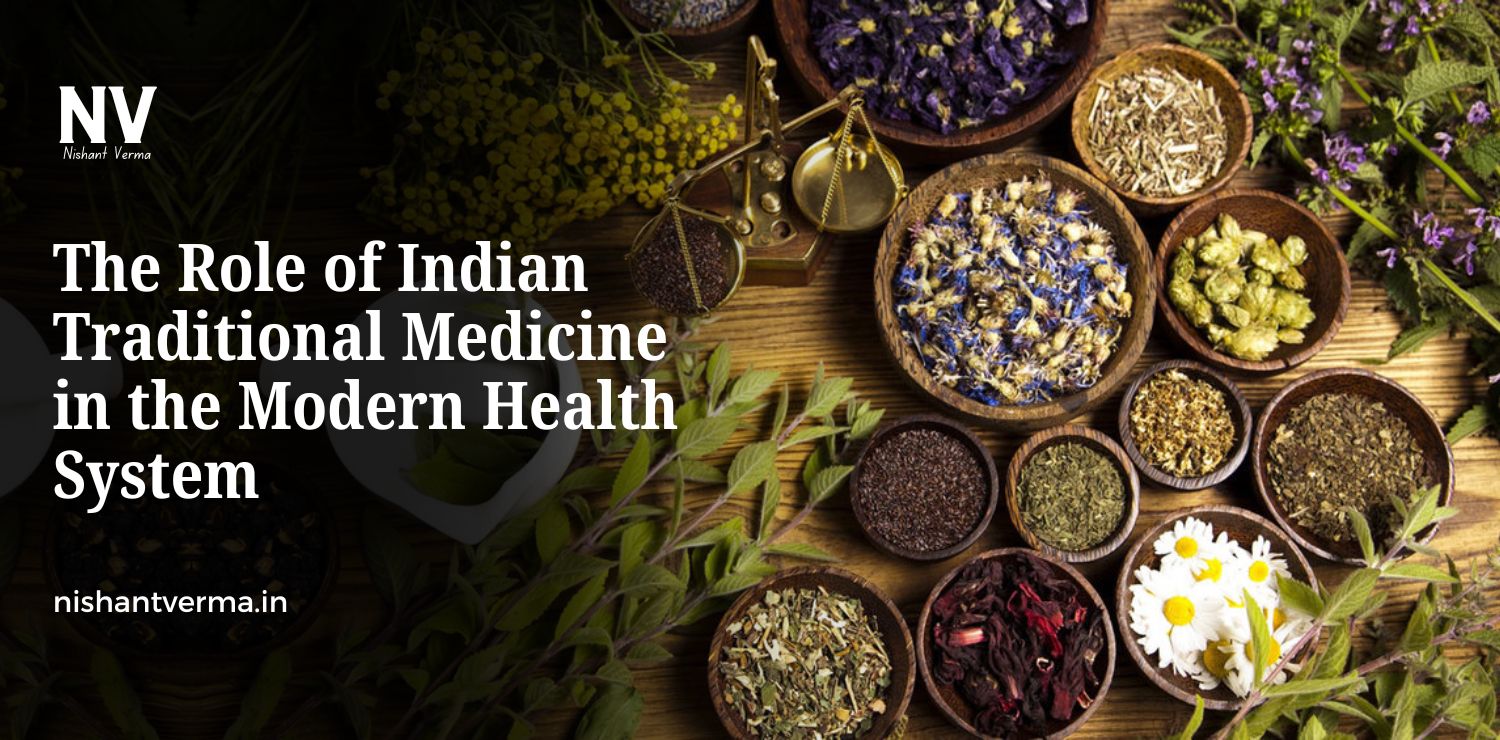In today’s fast-paced world, many people are turning to ancient practices to restore balance and improve their well-being. One such practice that has gained global recognition is Ayurveda. Known as the “science of life,” Ayurveda is a holistic system of medicine that originated in India thousands of years ago. Although it is ancient, its principles remain incredibly relevant in the modern world as people search for ways to lead healthier, more balanced lives.
What is Ayurveda?
The word “Ayurveda” comes from two Sanskrit words: Ayur meaning life, and Veda meaning knowledge or science. Together, Ayurveda translates to “the science of life.” It is based on the belief that health and well-being are influenced by a balance between the body, mind, and spirit. Unlike Western medicine, which often focuses on treating symptoms of disease, Ayurveda emphasizes prevention and overall well-being.
Ayurveda is deeply rooted in the understanding of the five elements—earth, water, fire, air, and ether (space)—which are believed to make up everything in the universe, including the human body. These elements combine to form three primary energies or doshas: Vata, Pitta, and Kapha. Each person has a unique balance of these doshas, and maintaining this balance is key to good health.

The Three Doshas
- Vata (Air and Ether): Vata governs movement, including circulation, breathing, and the nervous system. People with a dominant Vata dosha are often creative, energetic, and quick-thinking, but they may also experience anxiety, dryness, and irregular digestion if Vata becomes imbalanced.
- Pitta (Fire and Water): Pitta is associated with transformation and digestion. It controls metabolism, body temperature, and energy production. Pitta-dominant individuals are typically determined, focused, and ambitious, but can also become irritable, overheated, or suffer from inflammation when Pitta is out of balance.
- Kapha (Earth and Water): Kapha governs structure, stability, and lubrication in the body. It regulates the immune system, growth, and the fluid balance. Kapha types are usually calm, grounded, and compassionate, but can become lethargic, overweight, or congested if Kapha is in excess.

Ayurveda and Its Holistic Approach
One of the core principles of Ayurveda is that health is not merely the absence of disease, but a state of harmony and balance. Ayurveda emphasizes the importance of a balanced lifestyle, proper nutrition, adequate sleep, exercise, and mindfulness to promote well-being. Here’s how Ayurveda approaches different aspects of life:
- Diet and Nutrition: In Ayurveda, food is seen as medicine, and what we eat can significantly affect our physical and mental health. According to Ayurvedic principles, food should be chosen based on one’s dosha, season, and digestive strength (Agni). A balanced diet is one that aligns with the body’s needs and supports digestion.
- Vata types should eat warm, moist, and grounding foods to balance the airy, dry qualities of Vata. Cooked grains, root vegetables, and healthy fats like ghee are recommended.
- Pitta types benefit from cooling foods, such as fresh fruits, vegetables, and dairy, which help to calm the fiery nature of Pitta.
- Kapha types need light, dry, and stimulating foods to counterbalance the heavy, slow-moving qualities of Kapha. Spices, leafy greens, and legumes are ideal for Kapha.
- Herbal Remedies: Herbs play a central role in Ayurvedic healing. Many herbs used in Ayurveda, such as turmeric, ashwagandha, and tulsi (holy basil), are known for their anti-inflammatory, immune-boosting, and stress-reducing properties. Ayurveda relies on a wide range of plant-based remedies that address the root cause of health issues, rather than just masking symptoms.
- Mind-Body Connection: Ayurveda also stresses the importance of mental health. It recognizes that the mind and body are deeply connected, and emotional imbalances can lead to physical illness. Practices such as meditation, yoga, and mindfulness are recommended to keep the mind calm, focused, and balanced. For example, regular meditation can help manage stress, while yoga helps improve flexibility, strength, and energy flow. Ayurvedic massages, such as Abhyanga, involve the use of warm oils to relax the body, stimulate circulation, and promote detoxification.
- Detoxification and Cleansing: In Ayurveda, detoxification is considered vital for maintaining health and preventing disease. Ayurvedic cleanses, known as Panchakarma, involve a series of therapeutic treatments designed to purify the body, eliminate toxins (Ama), and restore balance to the doshas. This might include techniques like oil massages, herbal steam baths, and enemas. Detoxification helps reset the body’s systems and is believed to improve digestion, boost immunity, and increase energy levels.

Ayurveda in Modern Times
Even though Ayurveda originated thousands of years ago, its relevance in today’s world cannot be overstated. Modern life, with its fast-paced schedules, processed foods, and high levels of stress, has led to an increase in chronic conditions such as anxiety, obesity, diabetes, and digestive disorders. Ayurveda offers valuable insights and natural solutions to address these issues.
Here’s why Ayurveda continues to thrive in the modern world:
- Natural Healing: In a time when many people are becoming more conscious about the side effects of pharmaceutical drugs, Ayurveda provides natural, plant-based solutions. Ayurvedic remedies are often gentler on the body, focusing on restoring balance rather than simply treating symptoms. This has made Ayurveda a popular choice for those seeking alternative or complementary treatments.
- Personalized Healthcare: One of the most significant advantages of Ayurveda is its personalized approach to health. Instead of offering a one-size-fits-all solution, Ayurveda tailors treatments based on an individual’s unique constitution (Prakriti), lifestyle, and current imbalances (Vikriti). This means that treatments are more effective and sustainable because they are specifically designed for the person’s needs.
- Stress Reduction and Mental Health: Ayurveda’s emphasis on mindfulness, meditation, and stress reduction techniques is particularly valuable in today’s high-stress society. Many people are turning to Ayurvedic practices to manage anxiety, insomnia, and depression. Yoga and meditation, two key components of Ayurvedic philosophy, have been shown to reduce stress, improve mood, and promote overall well-being.
- Preventive Care: While modern medicine often focuses on treating illness after it occurs, Ayurveda emphasizes prevention. By maintaining balance in the body and mind through diet, lifestyle choices, and self-care practices, Ayurveda helps individuals stay healthy and avoid disease in the first place. This preventive approach is especially important in an era where chronic diseases are on the rise.
The Global Popularity of Ayurveda
Over the past few decades, Ayurveda has gained a significant following outside of India, with people all around the world seeking its wisdom for a healthier lifestyle. Ayurveda’s holistic approach, combined with its focus on prevention and natural remedies, makes it an appealing option for those who want to take charge of their own health.
In countries like the United States, Europe, and Australia, Ayurvedic practitioners are becoming more common. Ayurvedic products, such as herbal supplements, essential oils, and skincare products, are also increasingly available in the mainstream market.
Conclusion: Ayurveda: The Timeless Science
Ayurveda is much more than just an ancient system of medicine; it is a complete lifestyle that can help us live in harmony with our bodies and minds. Its holistic approach, personalized treatments, and emphasis on prevention make it a valuable tool in today’s world, where many people are looking for natural ways to stay healthy and balanced.
Incorporating Ayurvedic principles into daily life—whether through mindful eating, stress reduction, yoga, or herbal remedies—can improve overall well-being and lead to a more fulfilling life. As we continue to embrace the wisdom of the past, Ayurveda proves that ancient knowledge still holds the key to a healthier, more balanced future.




